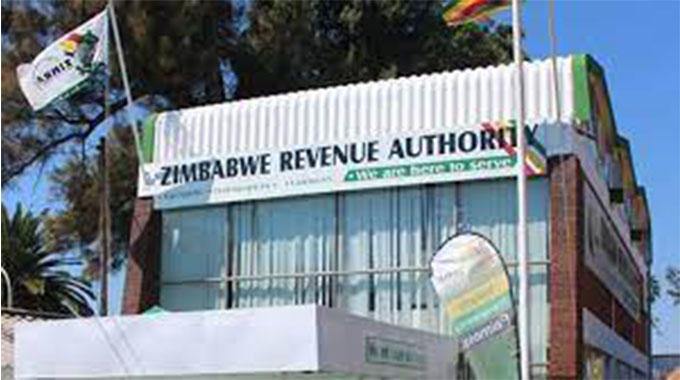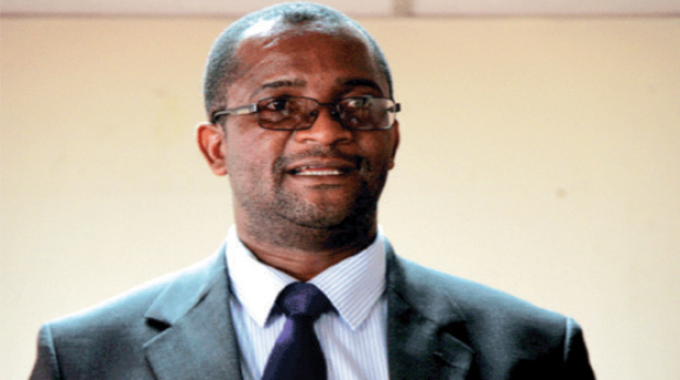Corruption a biggest non-tariff barrier to business-Zimra

Prosper Ndlovu, Business Editor
ZIMBABWE Revenue Authority (Zimra) commissioner general, Ms Regina Chinamasa, says corruption is one of the biggest non-tariff barriers to business as it constrains the country’s product competitiveness, which negatively affects potential investor confidence.
Calling on all Zimbabweans to shun corruption and collaborate with the Government in bringing the culprits to book, she said the tax authority has intensified the fight against graft with focus on scaling up Domestic Resource Mobilisation and contributing to robust national development.
In her address during a Tourism and Taxation Business Breakfast meeting in Bulawayo last Friday, Ms Chinamasa said collaborative efforts were critical in tackling non-tariff barriers (NTBs), including corruption.

Zimbabwe Revenue Authority (Zimra)
NTBs generally refer to bottlenecks that restrict ease of doing business, imports or exports of goods or services in the context of trade through mechanisms other than the simple imposition of tariffs.
Corruption is one of these business barriers that continue to eat into the moral fabric of the country, said the Zimra boss.
“Corruption is one of the biggest non-tariff barriers that makes our products less competitive on the international market and erodes investor confidence,” she told delegates.
“My organisation has put in place several measures to fight corruption, which include the anti-corruption hotline that you can use to anonymously report corruption, as well as disciplining members of staff in accordance with the laws of the land and the authority’s code of conduct.
“Our efforts, however, can only be successful to the levels that we expect if we collaborate to fight this scourge.”
The Zimra commissioner’s remarks come at a time when the Second Republic led by President Mnangagwa has declared “zero tolerance” against corruption and, through the Zimbabwe Anti-Corruption Commission (Zacc), several ill-gotten assets have been recovered by the State while more high-profile cases involving senior Government and private sector official have been dragged to courts.
Ms Chinamasa said Domestic Resource Mobilisation (DRM), which refers to generation and spending of domestically generated funds to provide public goods, remains a vital cog in the country’s quest to steer economic transformation in line with the aspirations to achieve an upper middle-income economy by 2030.
DRM has gained even greater importance with the launch of the Addis Tax Initiative (ATI) in July 2015 and the adoption of the Sustainable Development Goals (SDG’s).
“So, as a revenue administrator, enhancing DRM is not just necessary but imperative and critical in order to guarantee resources for Government’s social and economic programmes. It’s the only long-term panacea for the economy that is saddled with an international debt amounting to US$7,4 bn and a domestic debt of US$9,5 bn,” she said.
The Zimra boss said the tourism sector, given its potential as one of the top economic sectors, could contribute more towards creating adequate fiscal space for the Government so that it does not depend too much on foreign debt or aid.
Statistics already indicate the tourism sector has always contributed an average seven percent towards the Gross Domestic Product of Zimbabwe, and there is great potential in this sector if the right policies are put in place to promote voluntary tax compliance.
“It’s, therefore, imperative that we always gather to have honest discussions to find solutions to the challenges that the tourism sector faces as it seeks to comply with the country’s tax and customs laws, and this platform is the perfect one, which sets the tone for other future engagements,” said Ms Chinamasa.
In order to enhance sustainable taxation, she said more needs to be done to do away with complex tax legislation, tax codes, high tax rates and high compliance burdens, which discourage payment of tax and promote informalisation in any economy.

Ms Regina Chinamasa
Ms Chinamasa said Zimra was working on a number of initiatives to encourage voluntary compliance, one of which is the setting up of information kiosks across the country where clients can go and get assistance on how they can comply using our e-services platforms.
A pilot project was launched at Kurima House in Harare and the authority is in the process of setting up more of these across all our major inland stations.
“The emphasis is on creating and nurturing a relationship based on trust and co-operation between the revenue authority and our clients,” she said.
“Building and fostering partnerships with our clients in the tourism industry and important stakeholders is one thing we will not take for granted, since the achievement of our mandate is anchored on strong client and stakeholder engagement.”












Comments